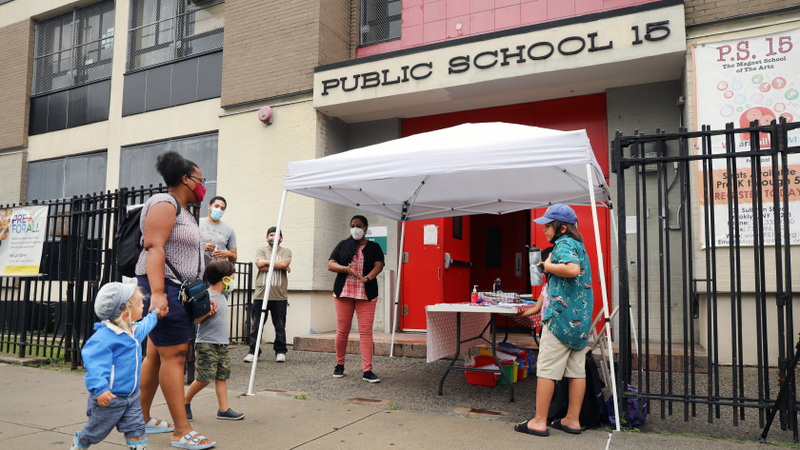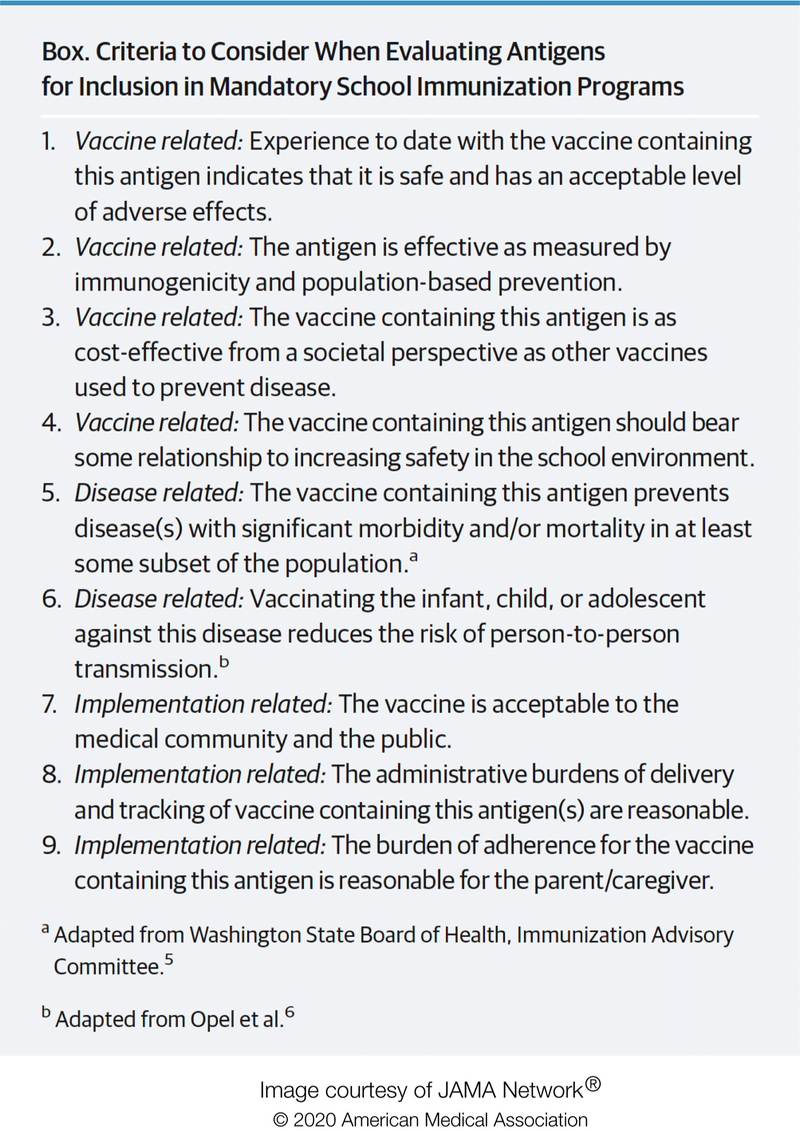
Should a Covid-19 Vaccine Be Mandatory for Kids? Health Experts Are Trying to Decide
by Ed CaraAs the race to develop a vaccine for the coronavirus that causes covid-19 continues, a crucial question is on the horizon: Should a successful vaccine be made mandatory for children entering school? In a new paper out Monday, a group of experts argue that it’s still too early to answer the question definitively, but they outline several important criteria needed for a childhood covid-19 vaccine to be deemed required.
Though a discussion about making any approved covid-19 vaccine mandatory hasn’t been front and center among public health experts yet, it’s certainly worth considering, according to Julie Swann, a systems engineer at North Carolina State University who advised the Obama administration during its rollout of a vaccination campaign for the 2009 swine flu pandemic. And there are already several mandatory vaccine programs for children entering public school in the U.S. and elsewhere.
“Logistically, it is relatively easy to mandate vaccines for children, because you can mandate it before they begin school.” said Swann, who is not affliated with this new paper, “But it will also depend on how effective the vaccine is, what the side effects are, and what the cost and benefits are.”
The new paper, published in JAMA Pediatrics, outlines nine criteria for making a covid-19 vaccine for children mandatory, based on existing guidelines as well as the authors’ own previous research. But, according to the authors, the most important details needed to know whether these criteria would be fulfilled or not are still missing.
While there are half a dozen vaccine candidates in late-stage clinical trials, for instance, we don’t know how effective any of them are at preventing infection. Many vaccines are highly effective, preventing over 90 percent of infections, while others, like the annual flu vaccine, are much less so, hovering between 30% and 60% effectiveness, depending on the year. Even a relatively less effective vaccine would be valuable, though, if it can reduce the risk of serious illness.
Advertisement
The vaccines’ potential safety is less in doubt, with early clinical trials having found few to no reports of serious adverse events related to these candidates. But it was just last week that the pharmaceutical company AstraZeneca paused its Phase III trials, following a report of a participant who developed serious neurological symptoms at some point after she got the vaccine. It’s not clear whether the woman’s illness was actually related to her having received the vaccine, however. The company has since partly resumed its trials in the UK, following a decision by an independent panel overseeing them. AstraZeneca is the one of the few companies to have included children as participants in its trials so far, Swann noted, and it may take a long time before we have relevant data on the safety of children who take any of these vaccines.
“The criterion that should be prioritized over all others is the first: there must be evidence that a COVID-19 vaccine is safe for children with an acceptable level of risk,” the authors of the new paper wrote.
Beyond that, we also don’t have a clear grasp entirely on how covid-19 affects children. The current vaccines mandated for public school children tend to protect against infectious diseases that are more serious for children to experience than adults, such as measles, or become more serious in their teenage years, such as chicken pox. But we know children generally experience less severe illness from covid-19 than adults do, which could weigh against making a vaccine for them mandatory. Only a handful of states make flu shots mandatory for children, and none mandate for it entering grade school—the flu is possibly the closest analog to covid-19, being a very common but preventable respiratory infection that tends to be more serious for older people. At the same time, children aren’t invulnerable to covid-19, and some do develop serious complications that can be life-threatening.
Aside from personal risk, another possibly compelling argument for making a covid-19 childhood vaccine mandatory is the worry that children can easily give their infection to others, particularly their teachers and older family members. But again, the evidence for widespread covid-19 transmission from kids is still in flux. There have been reports of outbreaks predominantly involving children, and children can give the coronavirus to others. But we don’t know how likely kids are to start and fuel outbreaks of covid-19 in schools and elsewhere, as opposed to transmission mostly happening from adults to children.
“While children are not at greatest immediate risk of severe outcomes from covid-19, they can have severe outcomes, and they can carry it to others,” Swann noted.

Assuming there’s a real benefit to stopping transmission from kids, a vaccine would need to be easily accessible to children and their families before it’s made mandatory, according to the authors.
“Because the benefit of a covid-19 vaccine will largely accrue to high-risk adults, rather than children, it should not be burdensome for a child or, more accurately, a child’s parent or guardian, to comply with the vaccine mandate,” they wrote. “This means a mandated vaccine must be widely available, easily accessible, and affordable to all.”
Right now, the most important thing is finding a vaccine for covid-19 that works in the first place. But this is exactly the time to start thinking about who will most need and benefit from vaccination. By laying out these criteria now, the authors hope to build a framework for other experts to decide what’s best for everyone, including kids.
“The only logical conclusion is that we currently know too little about the performance of any of the candidate COVID-19 vaccines or the epidemiology of SARS-CoV-2 in children to make any firm judgments about whether a COVID-19 vaccine should be mandatory in children,” they wrote. “Yet, it is not too early to begin integrating these criteria into our planning to help ensure we get this decision right. Our nation’s children deserve as much.”